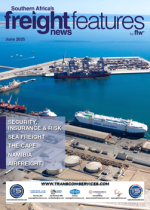Transnet’s port system is not the only one in the world that is failing to keep up with demand.European ports experiencing congestion include Antwerp, Hamburg, Rotterdam and Le Havre, while in Asia, Shanghai, Singapore and Port Klang also have delays, according to Metro Global.There are also delays reported in the United States and South American ports.DHL reports that blank sailings have risen on the main global routes due to port congestion, affecting over 9% of the world f leet, or 2.9 million TEUs. It predicts that blank sailings will increase in the second quarter of this year.A study of over two thousand Maersk customers in the European region found that over 76% had experienced supply chain disruptions in 2024.One-fifth (22%) of the businessesreported over 20 disruptive incidents over the previous 12 months, with one in three having difficulty securing the necessary materials for production. Supply chain disruptions caused higher costs than expected for 58% of the cargo owners.Supply chain challenges were attributed to a rising number of geopolitical conf licts and tensions, as well as severe weather situations due to climate change.In response, 53% of the companies polled are looking for suppliers who are closer geog raphic a lly.First choice was Türkiye (11% of respondents), followed by Egypt (7%), Poland (6%), Morocco (3%) and Romania (2%). This trend could have an impact on South African exporters.It is a global trend which could have far-reaching effects on sea freight patterns.Another factor is that risks from conf lict and criminal activities now extend globally, with the rise in cyberattacks on vessels, shipping lines, ports and logistics operators.A DNV report found that 31% of maritime professionals had experienced at least one cyberattack in the 12 months leading up to October 2024, up from 17% over the previous five years.Capacity is also being affected by a shortage of shipping containers, particularly 40ft high-cube containers.Transnet is also not the only operator facing labour action.A shortage of skilled maritime workers and the threat of labour strikes is seen as one of the major risks to freight capacity. The most disruptive strike in 2024 saw over 45 000 dockworkers closing more than 40 ports in the United States. Industrial action also affected Canadian ports and Canadian Railways.A second US port strike was narrowly averted in January. Shippers waiting for better rates are warned by Metro Global that “in an environment where schedule reliability is poor, congestion is high, and demand could rebound with little notice, waiting for rate relief may come with unintended consequences”.ER

